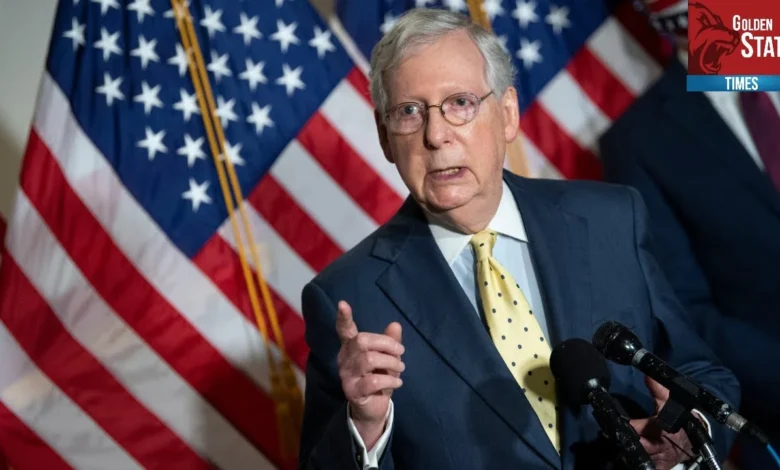House Republicans Urge Senate on HSAs: Pushing for Health Savings Account Expansion

1. What’s at Stake: HSAs in the “One Big Beautiful Bill”
House Republicans Urge Senate on HSAs: The “One Big Beautiful Bill” (OBBB) – Congress’s latest massive budget and tax reconciliation proposal – initially included numerous enhancements for Health Savings Accounts (HSAs). These changes promise to make HSAs more accessible, flexible, and beneficial for millions of Americans. However, the Senate Finance Committee notably stripped key HSA provisions from its version of the bill, sparking friction with House allies who viewed it as a setback for health cost reform.
HSAs have grown in popularity, with over 39 million users holding more than $147 billion in assets, making policy shifts here deeply impactful.
2. What Did House Republicans Want to Include?
House Republicans backed a series of ambitious reforms to modernize HSAs:
-
Allowing Medicare Part A enrollees to continue contributing, ensuring retirees can still fund HSA for healthcare costs.
-
Permitting HSAs for ACA marketplace Bronze and catastrophic plans, expanding eligibility to lower-premium health plans.
-
Covering fitness-related expenses, like gym memberships, up to $500 per individual or $1,000 per couple—without requiring a doctor’s note.
-
Doubling contribution limits, facilitating greater retirement and healthcare savings.
-
Opening up spousal catch-up contributions for HSAs, providing flexibility for married couples.
These proposals aim to increase flexibility, accessibility, and the tax-efficient retirement savings potential of HSAs.
3. House Republicans Take Action
On June 24, 2025, Rep. Chip Roy (R-TX) and 23 House Republicans formally urged Senate leaders to reintroduce these stripped HSA provisions into the final reconciliation bill. Their appeal emphasized the broad policy benefits—lower healthcare costs, expanded access, and enhanced retirement planning.
Simultaneously, groups like the Council for Affordable Health Coverage (CAHC) organized support from employers and stakeholders, reinforcing the importance of restoring HSA expansions—particularly for multisector components such as direct primary care and broader expense eligibility.
4. Why the Push: Benefits & Industry Support
HSAs boast a triple tax advantage—pre-tax contributions, tax-free growth, and tax-free withdrawals for qualified healthcare costs—making them powerful tools for both healthcare spending and retirement savings.
Expanding HSAs aligns with multiple public and private interests:
-
Fitness industry: Gym chains like 24 Hour Fitness and boutique studios (e.g., Physique 57) argue that HSA eligibility boosts customer retention and spending—often citing usage increases of HSA accounts without requiring medical justification.
-
Retirees and pre-Medicare contributors: Allowing HSA contributions post-Medicare enrollment was a long-standing reform goal meant to help retirees maintain tax-advantaged savings while covering medical costs. Its omission from the final bill disappointed many.
5. What Made the Final Cut? What Didn’t?
Despite widespread backing, many HSA enhancements did not survive into the final OBBB bill. According to Kiplinger, several key reforms failed to pass:
-
Provisions allowing Medicare Part A contributions
-
Increased contribution limits
-
Spousal contribution flexibility
-
Pre-account expense reimbursement
-
Fitness expenses (gym memberships)
Nonetheless, one change did progress: as of January 1, 2026, people in Affordable Care Act (ACA) Bronze or catastrophic High-Deductible Health Plans (HDHPs) will become eligible to contribute to HSAs.
This represents a meaningful, though limited, step toward broader HSA applicability.
6. What’s Next? Legislative Outlook and Ongoing Debate
The Senate is advancing the reconciliation bill, but with many amendments and floor votes ahead. The deadline to finalize the bill by July 4 is tight, and negotiations remain fluid.
House Republicans and industry allies continue lobbying for broader inclusion—urging not to let this “once-in-a-generation opportunity” slip away.
However, critics argue the changes disproportionately benefit higher-income individuals and overlook structural healthcare affordability issues.
As the reconciliation process continues, tensions remain high. Will some of the HSA provisions return through compromise in conference negotiations? Time will tell.
Conclusion
House Republicans are firmly advocating for the restoration of Health Savings Account expansion provisions in the OBBB reconciliation bill—including fitness expenses, Medicare contribution eligibility, and extended plan access. While the Senate has pushed back on many of these changes, a limited expansion did pass, opening HSA eligibility to ACA Bronze and catastrophic plan enrollees starting in 2026.
The final shape of HSA reform remains in flux. With stakeholders from retirees to fitness providers watching closely, the coming weeks will reveal whether broader HSA accessibility becomes reality—or remains largely aspirational.




